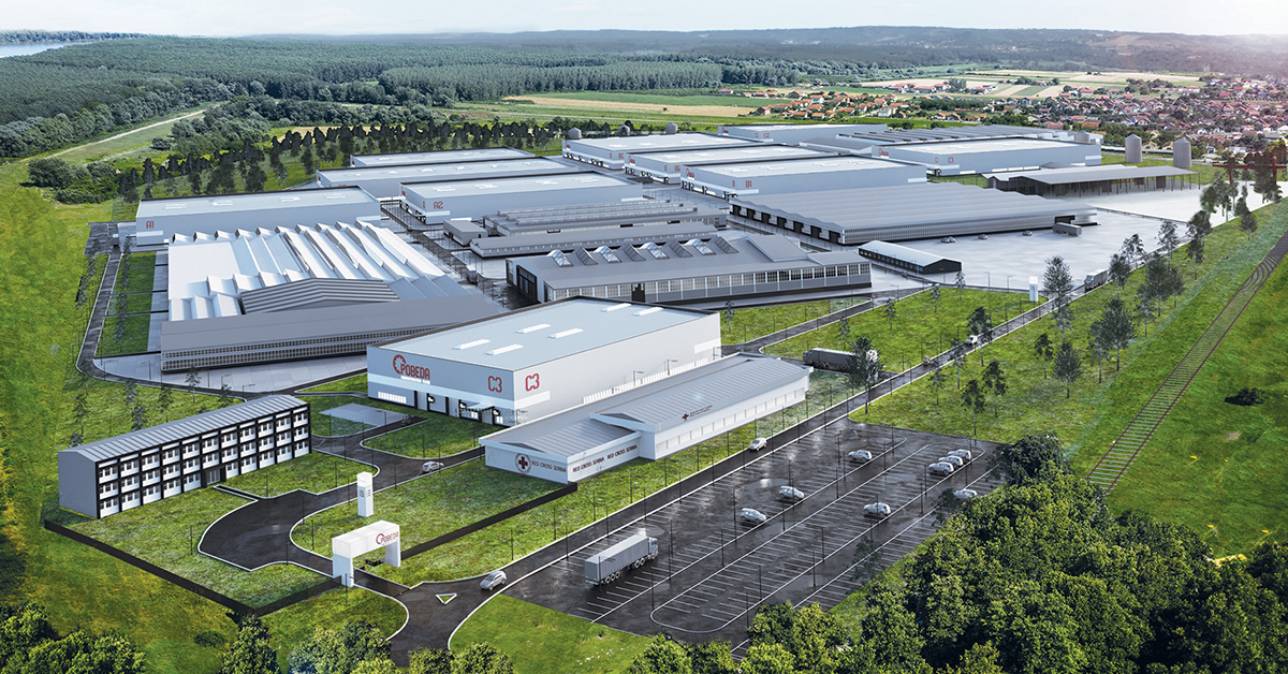THE DIFFERENCE BETWEEN INDUSTRIAL ZONES AND INDUSTRIAL PARKS
A huge obstacle for businesses can be finding industrial space with reliable infrastructure located in a suitable area. Therefore, it became clear that over time, a specialized solution needed to be designed. This was brought about by industrial zones and parks, which provide all the preconditions for work and growth by offering adapted and optimized solutions.
Industrial zones and parks were created in the 19th century, in the immediate vicinity of urban centers, and their development after the Second World War kept pace with industrial digitalization. In the process of their development, not knowing what the exact differences between these two concepts are, led to their identification.
INDUSTRIAL PARKS
In most cases, they are located in the suburbs or in the immediate vicinity of urban areas, but always close to important roads including highways, railways, airports and ports.
However, the key difference between industrial parks and zones lies in the fact that the industrial parks comprise a complete infrastructure network. Having access to and providing reliable sources of electricity, water and natural gas are features that can make a great difference. The technical specifications of the halls include truck doors for easy access, high-durability flooring, counterfire network, cranes inside and outside the halls.
The strategic creation of clearly defined zones for industrial production has enabled the achievement of several goals.
By organizing production in the industrial park, manufacturers reduce and optimize operating costs, making sure all details are taken care of. We’ve covered resolving technical issues, spatial problems and finding the perfect location. Dealing with these issues can take away valuable resources necessary for business development and improvement.
In addition, by providing a range of additional benefits such as customized solutions for production, storage, administration as well as the possibility of expanding capacity at one location, industrial parks become reliable partners.
The concept of the industrial park provides the necessary conditions for industrial production and has a particularly important role in reducing the harmful impact on the environment. By concentrating and organizing the work of several different sections from different industries, it is much easier to manage and reduce environmental pollution.
Finally, it should be noted that industrial parks facilitate communication within the community, following trends and encourage association and innovation.
INDUSTRIAL ZONES
Although developed industrial zones imply close vicinity of industrial plants in urban settlements, in the original sense it is a part of urban space intended for industrial production. Such zones often have infrastructure that includes industrial electricity, water supply, sewerage and telecommunication, while important transit roads are not always in proximity.
Therefore, unlike industrial parks, industrial zones are not a functional but a spatial whole. Their development can occur spontaneously, but most often it happens in a planned way.
The pre-designed industrial zone is an attractive location for industrial companies because they do not have to worry about the topography, because according to urban plans, the chosen terrain is suitable for industrial production.
Today, this approach is gaining importance because industrial companies are forced to relocate. In such cases, industrial zones represent a perfect solution for them, and at the same time they represent a powerful means of attracting new investments and manufacturers. For the state or local government, this means simplifying the procedure as well as guaranteeing the planning of production development and environmental protection.
CONCLUSION
Industrial zones and parks are urban areas for the construction and operation of factories according to the urban plan. The difference lies in the fact that industrial zones are a set of individual manufacturers, while industrial parks form one whole, within which they work independently, but everyone has access to the necessary benefits and additional services to be able to optimize work processes better.
The additional benefits provided by the industrial park are the reason for their growing popularity and cost-effectiveness. In parks, everything is subordinated to increasing efficiency of each member of the community, services are created to support their business development and most importantly, they can easily adapt to the needs of increasing capacity.
Unlike the zones in which the producers focus more on the company and their own organization, in the industrial parks everything is aimed at optimizing and facilitating the work processes of each tenant.
 Schedule a visit
Schedule a visit 

